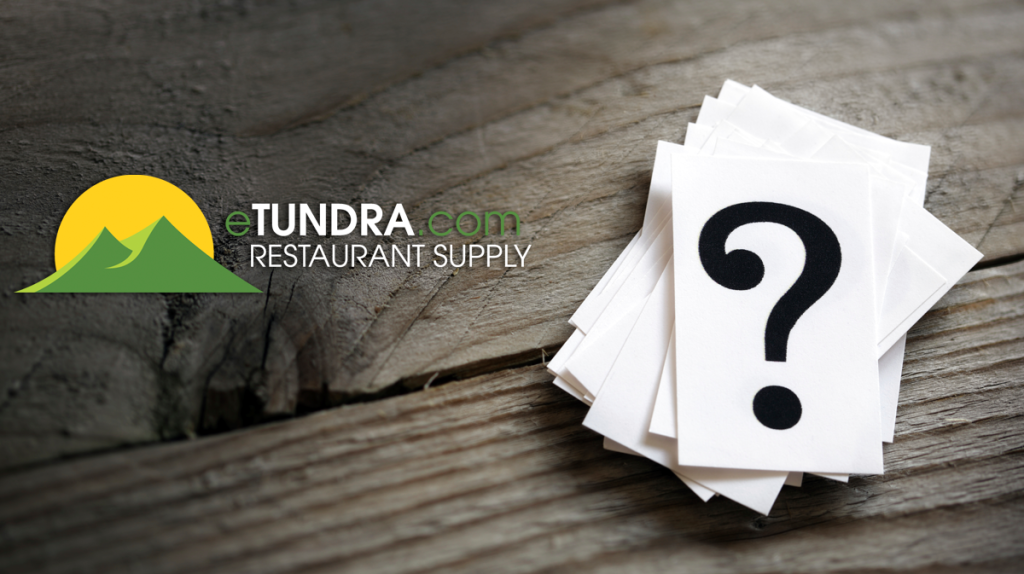 Here at Tundra Restaurant Supply, we strive to be more than just an online retailer. We believe in creating a better customer experience for you, which means that we offer one-to-one customer support to help you with your food service equipment, supplies and parts questions.
Here at Tundra Restaurant Supply, we strive to be more than just an online retailer. We believe in creating a better customer experience for you, which means that we offer one-to-one customer support to help you with your food service equipment, supplies and parts questions.
Over the years we’ve received several questions in our customer service department, through our social media channels, and here on the blog. We decided to feature 3 commonly asked questions we’ve received—check to see if any of these sound familiar!
Question #1 – At what time of day do you filter fryer oil?
“I work at a chain restaurant and the GM there doesn’t want us to filter the fryers at close but instead wait until open to do it. Is that safe for the oil?” –Wally
Answer: Morning is probably safest
Working with hot oil is one of the top commonly reported burn injuries in the kitchen. By waiting until the morning, you’re giving the oil ample time to cool, plus it shouldn’t affect the quality of the oil either way. For more about safely working with oil in the kitchen, check out this list of safety procedures from the Occupational Safety and Health Administration »
The most important thing, of course, is to filter the oil on a daily basis—so we applaud you and your company for this practice, Wally! Not only does it affect the quality and taste of the food you’re serving, but it directly affects the longevity of your frying oil and commercial deep fryer and you’ll most likely save yourself a service call if you practice proper oil maintenance from the start. For the tips on proper fryer maintenance, check out our Commercial Deep Fryer Buying Guide »
Question #2 – What causes a lot of soot and blue and yellow flames in our gas stove?
“Our gas stove is creating a lot of soot and the burners are shooting large blue and yellow flames” –Maria
Answer: Cleanliness is next to…
…you know how it goes.
Soot is typically an indicator of a dirty stove. That, paired with large flames, implies that you may be burning lots of debris in your gas stove. Stoves with soot often experience significant heat loss since the soot acts as an insulator; there is less room for combustion and natural venting, resulting in a smothered flame and a dramatic drop in heating efficiency. For more about cleaning and maintaining your foodservice equipment, review this user guide from the Southern California Gas Company »
If however, your oven is spotless, then you might want to see if it’s a gas pressure issue controlled by the gas valve itself. The valve helps regulate gas pressure to create a steady flow while simultaneously preventing any leaks.
Question #3: If I see flames coming from my deep fryer, should I call a technician?
“I have a deep fryer that has worked fine for nearly five years. However, the last two times I tried to use it there were flames coming out of the bottom of the burners. When I shut off the burners there were small flames coming from orifices at the bottom of the burner that looked like pilot lights. They died out after a couple of seconds. Does that sound like a repair job or a matter of cleaning? Where should I start to trouble shoot this problem?” –Kevin
Answer: Good ol’ fashioned elbow grease (sort of)
Fact: Grease and flames don’t mix.
One of the main reasons commercial deep fryers ignite is due to grease build up. After repeated splashing of oil from fryer baskets, a coating of grease can accumulate and harden on top of the exhaust stack. The residue might resemble a pumice brick instead of a grease buildup, and will become an excellent fuel source that’s easily ignitable. As with all equipment in your kitchen, keep your deep fryer clean and you can prevent something much more costly than a simple service call.
Have a question for the Tundra team? Contact us online or give us a call at 888-388-6372!
 Corner Booth Blog | TundraFMP Restaurant Supply, News & Equipment Blog
Corner Booth Blog | TundraFMP Restaurant Supply, News & Equipment Blog
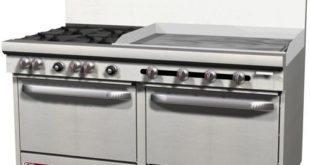
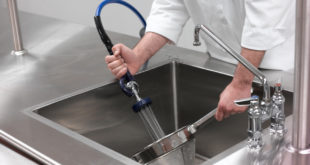
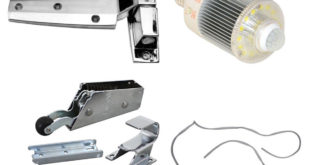
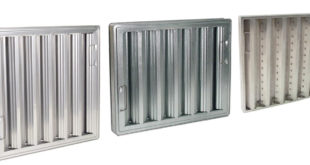
I like your advice of cleaning the soot from gas stoves. I know this is an important step in maintaining equipment and keeping the workplace safe. I think if cleaning is put on a schedule it would help remind restaurant owners to do this frequently. Keeping restaurant equipment properly maintained is really important to make them last longer.
Great answers on here. If I saw giant flames, I probably would have called someone. That’s because I don’t know much about this stuff. I haven’t had that problem because someone else keeps it super clean.
I have a question more than a comment. It’s my first time actually moving and disconnecting propane kitchen equipment. The propane to the building has been capped off by the propane company and the equipment hasn’t been used for about 4 months. Anyone know any special precautions I should take or able to point me to a resource that would shed a little more light on what I’m doing? Fairly good at figuring things out mechanically but electricity and gas are two things I don’t like to start messing with blindly. Thank you in advance.
Hey Christopher,
Safety is key. The two biggest things you need is good ventilation and NO OPEN FLAME. If the hood system is available, turn it on as that will pull any gases out of the building.
– Paul
Tundra Team